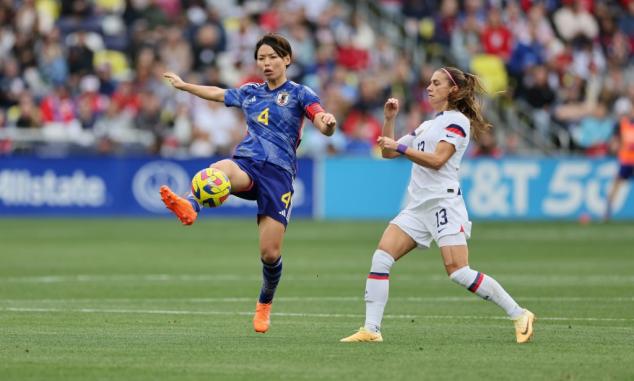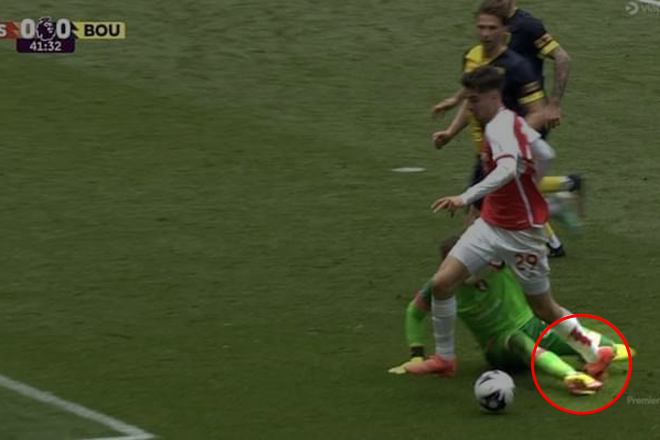Japan won the World Cup in 2011 playing a free-flowing style that made them the envy of women's football, but they have fallen behind since then, sparking accusations of mismanagement and neglect.
Japan used their slick attacking game to beat the United States in the final 12 years ago and went on to finish runners-up at the 2012 Olympics and 2015 World Cup.
But they failed to qualify for the 2016 Rio Games and have since struggled to haul themselves back among the top contenders in women's football.
Japan begin their latest World Cup campaign on Saturday against Zambia, but they are ranked 11th now and no longer among the favourites.
"I think we were left behind by the sudden strides that the rest of the world were making," former Japan coach Asako Takakura, who led the team at the 2019 World Cup, told AFP ahead of the 2023 edition.
In February, World Cup-winning striker Yuki Nagasato pointed the finger at Japanese football chiefs, saying they had "not done anything for 12 years to maintain or improve" the women's game in the country.
Nagasato, who last played for Japan in 2016, launched a tirade on her personal website after the team's games at the SheBelieves Cup were not broadcast at home.
"We don't want you to misunderstand, this is not only this time problem," Nagasato, who scored 58 goals in 132 international games, wrote in English on her website.
"Lack of many things has been building up and this is the result of what they've done for us."
Only a last-minute television deal avoided a similar blackout in Japan for the World Cup in Australia and New Zealand.
Overtaken
Japan were a revelation at the 2011 World Cup, using teamwork and technique to overcome physically stronger opponents such as Germany, Sweden and the United States.
The team were credited with lifting the nation's spirits after the deadly earthquake-tsunami earlier in the year, and the players became overnight stars.
Reaching the finals of the 2012 Olympics and 2015 World Cup kept them in the headlines, but the dream turned sour when they failed to qualify for the Rio Games.
World Cup-winning striker Shinobu Ono said missing out had been a shock.
"We had won silver at the previous Olympics and our goal was to win gold," said Ono, who retired in 2020.
"The other teams had analysed the way we played and we didn't change anything. We couldn't adapt and that was very frustrating."
"We knew that if teams that were physically stronger than us improved their own teamwork, we wouldn't be able to win," Ono added.
Failure to qualify for Rio spelled the end of World Cup-winning coach Norio Sasaki's eight-year reign, with Takakura taking over and leading the team to the last 16 at the 2019 World Cup.
She said it was "difficult to transition to the next generation" of players, with 2011 stars such as Homare Sawa and Aya Miyama no longer available.
Takakura stepped down after a quarter-final exit at the pandemic-delayed Tokyo Olympics and was replaced by current coach Futoshi Ikeda.
Semi-finals?
Women's football in Japan enjoyed a spike in popularity after the 2011 World Cup, but interest gradually tailed off and attendances at the semi-professional Nadeshiko League dwindled.
Ono believes the professional WE League, which kicked off in 2021, should have been established sooner.
"If we had done that, young girls would have started thinking they wanted to become professional players," she said.
"I would have liked to have seen that connectivity."
Takakura insists that Japan have "not stood still" since 2011 and they have the calibre of players such as Manchester City midfielder Yui Hasegawa and Angel City forward Jun Endo.
But Takakura acknowledges that Japan have been overtaken by the massive resources being poured into women's football in "countries with a cultural football foundation".
Despite more modest expectations back home Takakura wants the team to aim high at this World Cup.
"I want them to approach it with the attitude that they can win it," said Takakura.
"I think a realistic target is to reach the semi-finals."





























